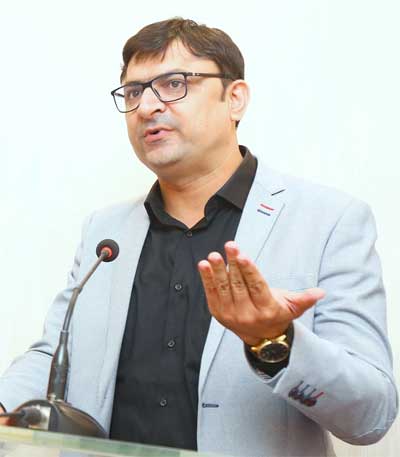KARACHI: In a world where global remittances are the financial lifeline for developing nations, Pakistan’s strategic pivot towards Japan for skilled manpower export is a masterstroke – guided by the forward-looking policies of Prime Minister Shehbaz Sharif’s administration.
As the Gulf States, especially the UAE, tighten their immigration policies, Pakistan’s Ministry for Human Resource Development has swiftly turned eastwards, recognising Japan’s untapped potential. Under the stewardship of Shehbaz Sharif and his economic team, this transition is being executed not merely to boost remittances, but to position Pakistani workers as global contributors to advanced economies.
The exodus of Pakistani workers to the UAE has nosedived by 72% within a year, from 230,000 in 2023 to merely 64,130 in 2024, due to increasing restrictions and societal issues including undocumented labour and misuse of entry. By contrast, Japan’s hunger for skilled manpower, particularly through the Specified Skilled Workers (SSW) framework, offers a high-value, high-integrity alternative.
This labour redirection is not an isolated step. Under the guidance of PM Shehbaz Sharif and his team – including Federal Minister Chaudhry Salik Hussain – Pakistan has actively engaged with Japan, South Korea, Germany, Romania, the United Kingdom, and Saudi Arabia, expanding the labour export landscape. Agreements and MOUs are already in place to streamline technical intern training programmes and skill-based migration.
Japan’s demographic crisis and ageing population have created a labour vacuum. The Japanese government’s recent decision to welcome 340,000 foreign workers under the SSW system is a golden opportunity for Pakistan, especially with Japanese Ambassador Akamatsu Shuichi’s endorsement of Pakistani talent.
Yet, there’s a cultural chasm to bridge.
Japan’s work culture values punctuality, precision, hierarchy, and subtle social norms-attributes often at odds with the informal work style prevalent in Pakistan. Language remains a major stumbling block, but not for long. Institutions like NUML, NUTECH, PlusW, and Ecoscience are now actively delivering Japanese Language Proficiency Test (JLPT) preparatory courses. Over 1,000 Pakistani applicants have already registered for JLPT this July – a testimony to the rising awareness and willingness to adapt.
Why are Pakistanis hesitant to opt for Japan? Despite Japan’s lucrative labour market, many Pakistani workers hesitate. The reasons are layered:
= Language barrier: Japanese is one of the most linguistically complex languages for Urdu speakers.
= Work ethic & social codes: Japanese society is heavily structured and meritocratic. Concepts like “wa” (harmony), non-verbal communication, and group consensus dominate business and daily life.
= Loneliness & isolation: With limited Pakistani diaspora in Japan (only 6,272 currently employed), new entrants often lack support systems.
However, this hesitancy is diminishing. The numbers speak volumes: from 1,184 workers in 2023 to 1,518 in 2024, and 708 in just three months of 2025, the trajectory is clearly upward-with over 3,000 placements expected by year-end.
It would be simplistic to frame this merely as a remittance-boosting exercise-although that alone is significant. Pakistan is on course to receive $38 billion in remittances this year, outpacing even its export earnings of $32 billion. In March 2025 alone, Pakistan received $4.1 billion, showcasing the real-time economic impact of overseas workers.
But the Shehbaz Sharif government’s vision transcends dollar inflow. The broader objective is human capital enrichment.
When skilled Pakistani professionals return from Japan, they carry back advanced technical knowledge, exposure to industrial best practices, and a professional ethic grounded in efficiency. This intellectual remittance is priceless. It is already beginning to contribute to Pakistan’s ICT and manufacturing sectors – areas assessed for growth by JICA and supported by Japan’s Technical Intern Training Programme (TITP) since 2019.
Apart from Japan, the Sharif-led government has activated labour agreements with multiple nations:
= South Korea: A robust EPS (Employment Permit System) has seen thousands of Pakistanis deployed in agriculture and industry.
= Germany & Romania: Agreements focus on nursing, engineering, and skilled trades.
= Saudi Arabia & the UK: Ongoing partnerships have been restructured to offer more legal and dignified work opportunities.
In a further testament to the Shehbaz Sharif government’s proactive and diversified labour diplomacy, Pakistan has recently formalised an agreement with Belarus to send its youth talent to support Belarus’s industrial and technological growth. This strategic move not only opens up fresh employment avenues for skilled Pakistani workers but also cements Pakistan’s image as a reliable partner in global human capital development. As detailed in an earlier feature, Belarus is positioning itself as a new economic frontier in Eastern Europe-and through this timely partnership, Shehbaz Sharif’s administration ensures that Pakistani youth are at the forefront of powering Belarus’s future-ready workforce landscape.
These initiatives have modernised Pakistan’s workforce export system, shifting from informal and unregulated labour flows to skill-driven, contract-based placements. It is no coincidence that these reforms have taken place under the current leadership, which values governance, transparency, and data-driven policymaking.
Economic diplomacy in action
Prime Minister Shehbaz Sharif’s administration deserves unequivocal credit for this pivot. Unlike the transactional diplomacy of the past, this government has employed economic diplomacy, identifying remittance corridors as strategic economic arteries.
= Visa facilitation cells have been established in various embassies.
= The Overseas Employment Corporation (OEC) has been reactivated with a results-oriented approach.
= Language training centres are being funded through public-private partnerships.
= Digital portals are now being used to match overseas job openings with verified Pakistani candidates – minimising middlemen and exploitation.
This is not just good governance; it is visionary statecraft.
Pakistan’s labour export to Japan, under the current government’s watch, represents more than a reactionary fix to Gulf contraction. It is a structured transformation of Pakistan’s global workforce strategy, focused on skill, respect, and remittance.
Yes, the journey is complex. Culture clashes, language barriers, and adaptation challenges persist. But with Prime Minister Shehbaz Sharif at the helm, backed by a committed economic team, Pakistan is not merely sending workers – it is sending ambassadors of resilience, discipline, and economic hope. The policy is clear: Transform the youth, export value, and import growth.
Global exposure shaping Pakistan’s next-gen talent



